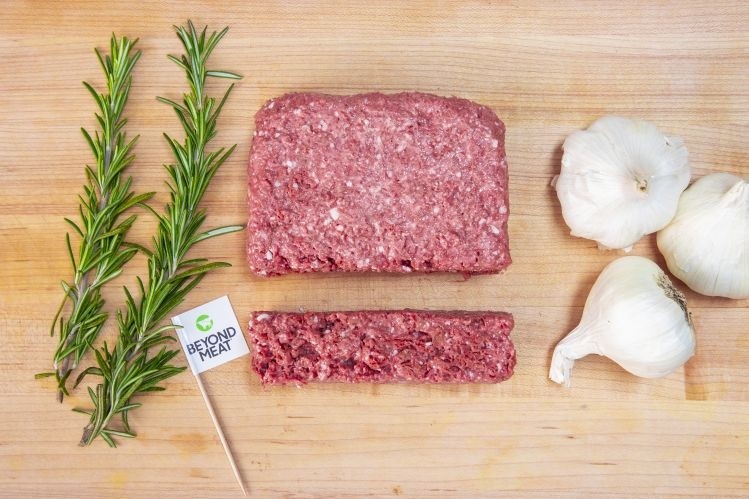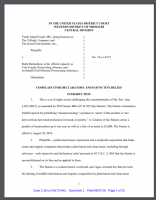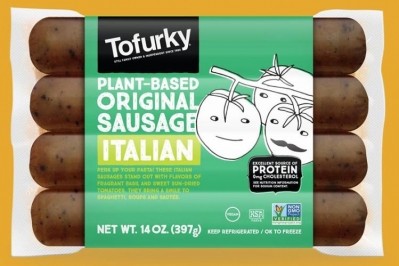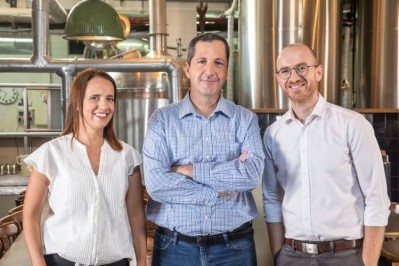Plant-based and cell-cultured 'meat' labeling under attack in 25 states

Washington DC-based nonprofit The Good Food Institute (GFI) launched a legal challenge to one such bill in Missouri on first amendment grounds last summer (a settlement is currently being thrashed out so it’s not yet clear how or if this case could impact potential litigation in other states), and has been aggressively ramping up lobbying efforts to ensure lawmakers hear both sides of the argument.
But it’s fair to say that opponents of such bills were caught by surprise by the speed with which other states started introducing them, given that there is no single ‘model bill’ state lawmakers are using as a template, said Michele Simon, executive director at the Plant Based Foods Association (PBFA), which represents the plant-based food industry.
She told FoodNavigator-USA: “We did expect some activity, but to be honest it was a surprise to all of us the number of states that came out at once given that it didn’t seem to be that orchestrated, as the bills are all slightly different. The wording is all over the place.”
PBFA: ‘Some of the bills are badly written, and ambiguous’
Some such bills, for example, are primarily concerned with the impact of cell-cultured meat – which has not yet hit the market - on the traditional meat & poultry industry (eg. H4245 in South Carolina and H1519 in Washington), while others (SB152 in Louisiana) attempt to cast a far wider net, targeting everything from veggie burgers to cauliflower rice, said Simon.
“Some of the bills are badly written, and ambiguous [for example, it’s not clear if some would just restrict terms such as ‘meat’ and ‘beef’ or if they could also end up restricting associated terms such as ‘burger’ or sausage’ owing to the very general way in which they are worded] and we’re particularly concerned about the legislation in Arkansas [HB1407, now Act 501] and Mississippi [SB2922].
“We’re hopeful that common sense will prevail so that our members can use qualifiers such as ‘plant-based’ if we can’t kill bills entirely,” added Simon, who noted that federal laws already prohibit deceptive packaging and marketing of products (labels must be truthful and not misleading).
“The nation’s leading fast food purveyors are putting plant-based burgers on their menus. What is Burger King selling if it’s not selling burgers? No one is confused and our members just want to use terms that consumers understand with the appropriate qualifiers, such as ‘plant-based.”
"The [Missouri] Statute criminalizes truthful speech by prohibiting 'misrepresenting' a product as 'meat' if that product is 'not derived from harvested production livestock or poultry.' The Statute is a content-based, overbroad, and vague criminal law that prevents the sharing of truthful information and impedes competition by plant-based and clean-meat companies in the marketplace. The Statute does nothing to protect the public from potentially misleading information.
"As such, the Statute violates the Free Speech Clause of the First Amendment, the Dormant Commerce Clause, and the Due Process Clause."
Complaint, Turtle Island Foods (dba The Tofurky Company) and The Good Food Institute v Mark Richardson, in his official capacity as Cole County Prosecuting Attorney, Missouri. August 27, 2018, 18-cv-4173.
'Legal challenges are in the toolbox, but right now we’re focused on trying to ensure that these bills don’t pass in the first place'
Asked what the PBFA can do aside from lobbying lawmakers, she added: "Legal challenges are certainly in the toolbox, but right now we’re focused on trying to ensure that these bills don’t pass in the first place, and the fact that there has already been a legal challenge in Missouri is something we mention to lawmakers in other states to say that they may face similar First Amendment challenges.”
Plant-based brands use a wide range of terms to describe their wares, with some referring to vegan or plant-based patties, burgers, crumbles or nuggets; others using terms such as ‘Vegan Chik'n Tenders’ or ‘meatless pieces;’ and some using brand names such as Beyond Beef (with the subheading, ‘plant-based ground).
However, they all use qualifiers, from ‘meatless’ to ‘plant-based’ or ‘vegan,’ and there is no evidence consumers are confusing these products with meat from animals, argues Plant Based Foods Association executive director Michele Simon.
“No one is trying to trick consumers into thinking they are buying meat from animals.”
GFI: State bills to prohibit ‘meaty’ terms for cell-cultured meat are federally pre-empted
When it comes to cell-cultured meat, the labeling of which will fall under the jurisdiction of the USDA (which will pre-approve label statements in the same way it does for meat from slaughtered animals), firms can argue that any state-level laws would be federally pre-empted, said GFI policy director Jessica Almy.
“The USDA’s assertion of its authority over cell-based meat labels under the Federal Meat Inspection Act and the Poultry Products Inspection Act pre-empts all of these state laws.
"But the problem is, they [the states proposing these bills] are going to continue to move forward unless there is a court decision that these laws are pre-empted, or unless a defendant raises that as a defense in litigation, or the USDA sends out a letter to the states telling them to stop.”
Bills have been introduced in Arizona, Kentucky, Mississippi, Montana, North Dakota, Oklahoma, South Carolina, South Dakota, Wyoming, Alabama, Arkansas, Louisiana, Colorado, Georgia, Hawaii, Illinois, Indiana, Iowa, Maryland, Washington DC, Nebraska, New Mexico, Texas, Tennessee, and Virginia. Several are dead or dormant, while some have passed both houses.
‘Some bills are so vague that they violate the due process clause of the US constitution’
As for the effect of some of the state bills on plant-based brands, Almy echoed some of Michele Simon’s comments. “A lot of the bills are written really broadly, so it is difficult for the average company to know if their labels will violate the law. And that’s actually one of the arguments we made in the Missouri case, that it should be void because it’s so vague that it violates the due process clause of the US constitution.”
Asked about future legal action, she said: “We strongly oppose these bills and we're not averse to using litigation as a tool. Clearly we're not going to be idle in the face of this blatant violation of the constitution as these bills attempt to give meat products [from slaughtered animals] an advantage over plant-based or cell-cultured meat in the marketplace.”
Louisiana bill also seeks to crack down on cauliflower rice
The PBFA and the GFI were speaking to FoodNavigator-USA ahead of tomorrow's hearing of the Louisiana House Agriculture, Forestry, Aquaculture and Rural Development Committee on SB152, which would restrict the term ‘beef’ to the “flesh of a domesticated bovine that is edible by humans” and ‘pork’ to “the flesh of a domesticated swine that is edible by humans.”
SB 152 – which passed the Louisiana state senate in April - would also prevent plant-based, insect-based or cell-cultured meat from using the term ‘meat’ on pack, and would restrict the term ‘rice’ to kernels from the species Oryza sativa L. or Oryza glaberrima, or wild rice, causing headaches for the makers of legume or vegetable based alternatives such as chickpea or cauliflower rice.
Missouri Cattlemen's Association: 'This is about protecting the integrity of the products that farm and ranch families work hard to raise each and every day'
Speaking to reporters last year as Missouri lawmakers approved senate bill 627, Mike Deering, EVP at the Missouri Cattlemen's Association, said the "use of traditional nomenclature on alternative products is confusing to consumers and weakens the value of products derived from actual livestock production."
He added:"This isn't a Missouri issue. This is about protecting the integrity of the products that farm and ranch families throughout the country work hard to raise each and every day. I never imagined we would be fighting over what is and isn't meat. It seems silly. However, this is very real and I cannot stress enough the importance of this issue. We are beyond pleased to see this priority legislation cross the finish-line."




















